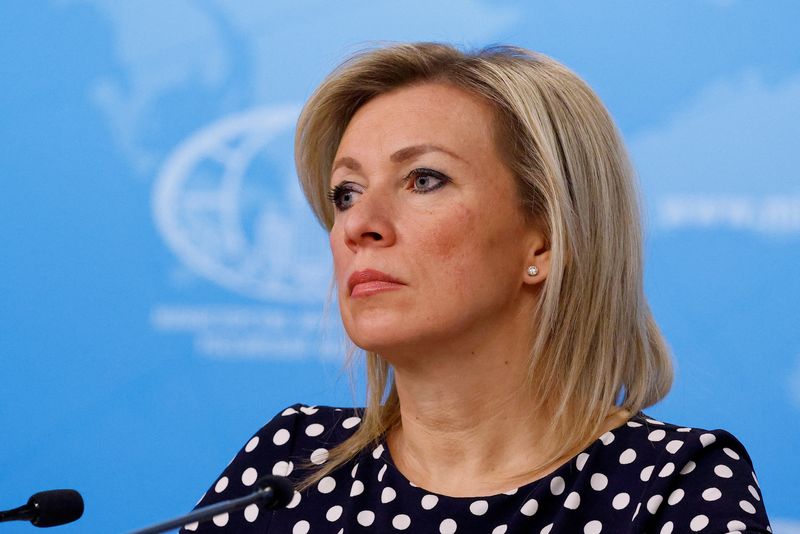In the aftermath of the deadly attack on a Moscow concert hall last Friday, Russian Foreign Ministry spokeswoman Maria Zakharova expressed skepticism about Islamic State’s alleged role in the massacre. Zakharova suggested that Ukraine was behind the attack, despite lacking evidence to support this claim. Islamic State has claimed responsibility for the attack, which killed over 140 people, with U.S. officials pointing to the group’s Afghan branch, Islamic State Khorasan. However, Ukraine has consistently denied any involvement in the incident.
Zakharova accused Western governments of rushing to blame Islamic State for the attack in order to deflect responsibility from Ukraine. She suggested that the West was quick to identify Islamic State as the culprit in order to protect its alliances with Kyiv. Zakharova claimed that Western media began disseminating these versions of events shortly after the attack occurred. Russian President Vladimir Putin has also implied that Ukraine may have played a role in the attack, suggesting that Kyiv may have facilitated the gunmen’s escape across the border.
Belarusian leader Alexander Lukashenko provided a different perspective on the attackers’ movements, stating that they first attempted to enter Belarus before changing course and heading towards Ukraine. This contradicted Putin’s assertion that the gunmen were aided by someone on the Ukrainian side in escaping to western Russia. The director of Russia’s FSB security agency echoed Putin’s suspicions, implicating Ukraine, the United States, and Britain in the concert hall attack. However, British Foreign Secretary David Cameron dismissed these claims as “utter nonsense.”
The lack of concrete evidence linking Ukraine to the attack raises questions about the validity of Moscow’s accusations. The ongoing conflict between Russia and Ukraine has strained relations between the two countries, with each side accusing the other of hostile actions. The allegations made by Russian officials reflect the complex web of geopolitical tensions in the region and highlight the challenges of navigating alliances and conflicts in a volatile political landscape. As the investigation into the Moscow concert hall attack continues, it remains to be seen whether conclusive evidence will emerge to support any of the conflicting narratives surrounding the incident.


